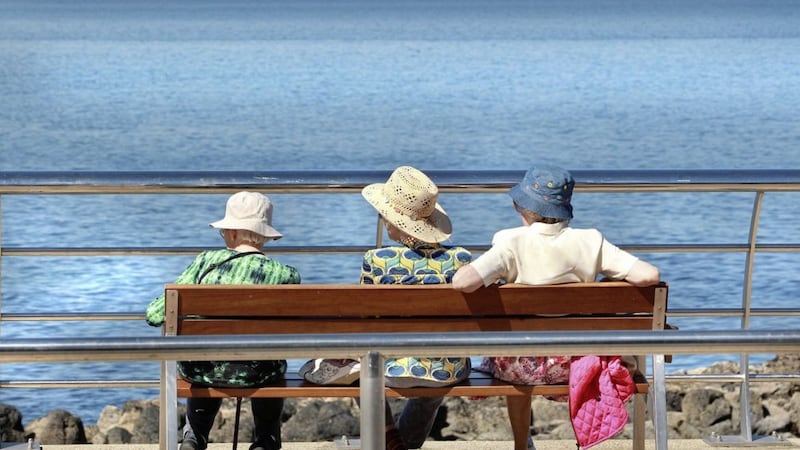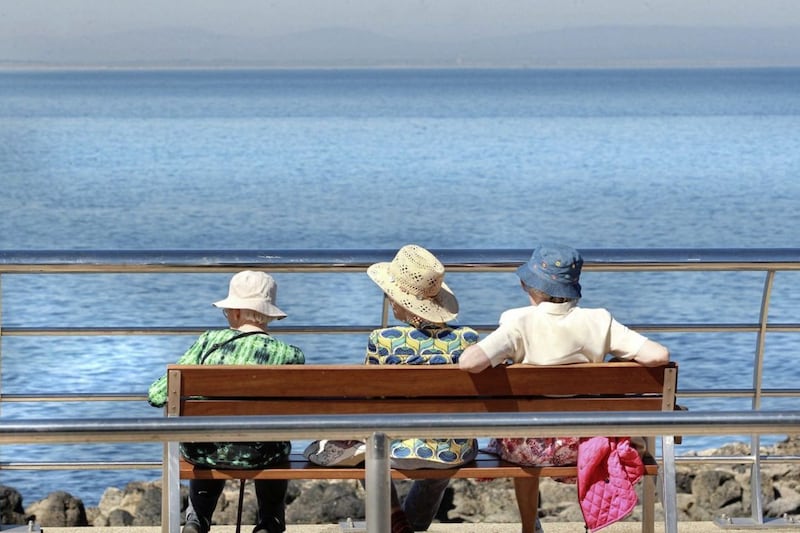Temperatures may reach record breaking highs as today is set to be the warmest day of the year.
The mercury hit 30 degrees in Castlederg, Co Tyrone, yesterday - one of the hottest days ever recorded.
The highest temperature in the north was recorded as 30.8C on June 30, 1976 in Co Fermanagh and July 12, 1983 in Belfast.
As the temperatures rose yesterday, authorities were called to deal with a large gorse fire in the Glenshane Pass area.
Northern Ireland Fire and Rescue (NIFRS) attended the fire, which came after they warned of the increased wildfire risk on Tuesday - due to the soaring temperatures and dry conditions.
An NIFRS statement said: "The fire front is approximately one mile in length and consists of five separate fires. As the fires are in a remote location and there is no current risk to life or property, NIFRS is monitoring the situation and will take appropriate action."
With temperatures predicted to increase further today, the Royal National Lifeboat Institution (RNLI) has appealed for people to stay safe when visiting the coast.
Rip-currents and tides are among the biggest cause of dangers to people visiting beaches.
The RNLI said the best way of preventing the danger of being cut off by the tide is to get local tidal information, and to keep an eye on the time and direction.
Surfers and water sport enthusiasts should always tell someone where they are going and when they will be back, wear a flotation device and carry means of calling for help.
The RNLI's 'Respect the Water' campaign is in its fifth year and it focuses on urging anyone who finds themselves in trouble in cold water to use the 'float’ method.
Lifeguard Supervisor Michael Thompson said: "To float, fight your instinct to thrash around, then lean back, extend your arms and legs and if you need to, gently move your arms and legs to help you float. Float until you can control your breathing. Only then call for help or swim to safety."
RNLI have also stationed lifeguards on daily patrol on 11 beaches this summer where they will be working to keep visitors safe.
The Department of Infrastructure (DfI) has said that due to the high temperatures, road surfaces are being affected.
A DfI spokesperson said: “Recent weather has led to a rise in road surface temperatures and with limited cooling at night, the bitumen in some roads has softened.
“The Department has been spreading fine dust/grit on the worst affected roads and will continue to do so as necessary. The situation is being monitored.”
Meanwhile, Largymore Primary School in Lisburn sent its pupils home early yesterday, after the temperature in the classroom hit over 30C.
The Public Health Agency has offered advice to the public on staying safe in the sun as the UV index remains ‘very high’ which can increase the risk of sun burn.
They say people should seek shelter when the sun is at its strongest, between 11am and 4pm, and should wear both a hat and a t-shirt for sun protection. They should also wear UV protecting sunglasses, as well as using at least a factor 15 sun cream with a 4 star UVA protection.
Doctors have said people should be drinking around two-and-a-half litres of water a day to avoid dehydration.


